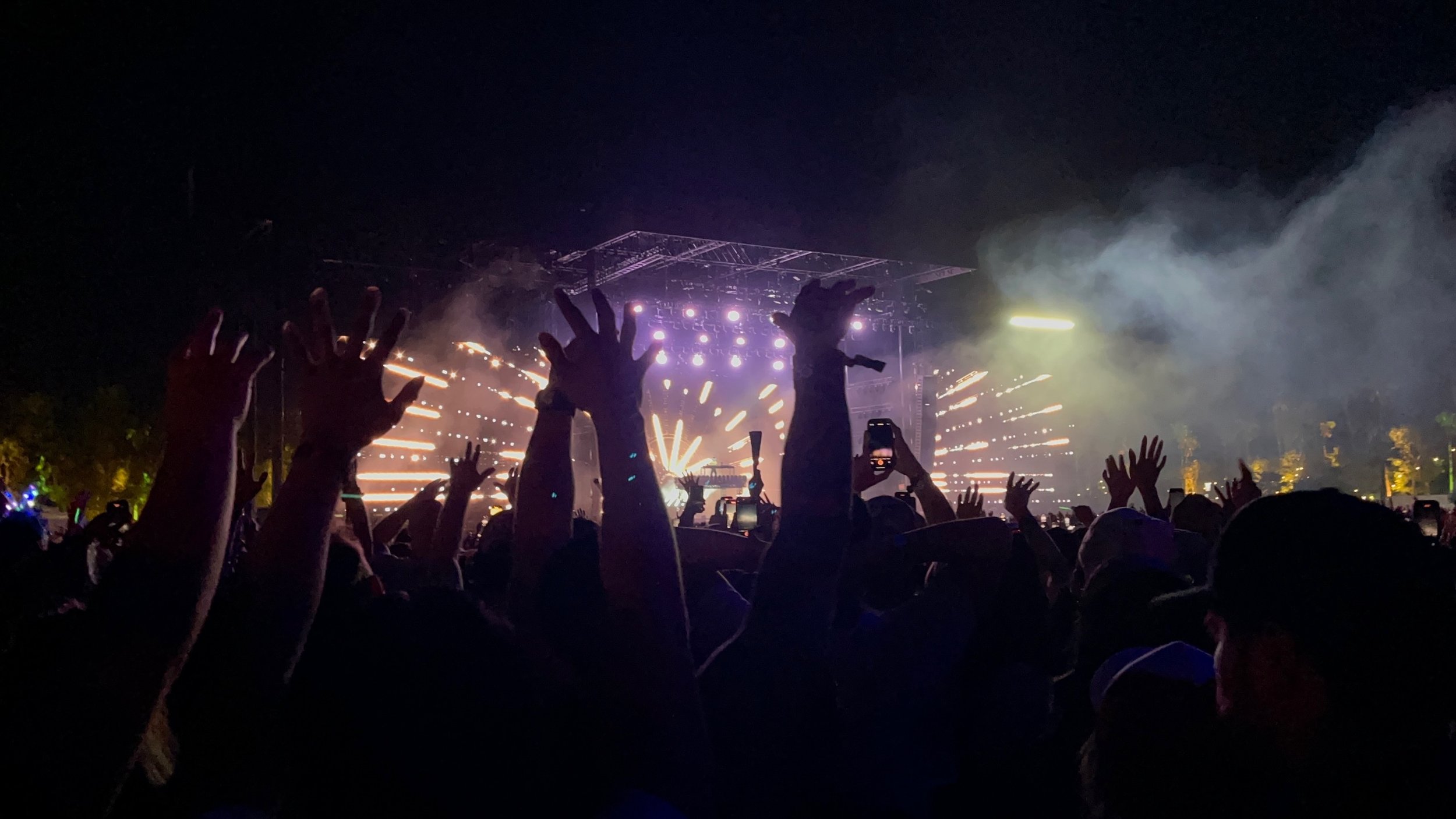The Coachella dilemma: Is it still worth the hype?
Coachella, one of the largest and most influential music festivals in the world, is attracting controversy from festival lovers and haters alike. High prices, 12-hour campground traffic, payment plans, censorship and corporate influence leave potential attendees contemplating whether skipping out on Coachella is worth the FOMO.
Sharon Abramson / Contributor
The annual festival turned 26 this year, with headliners such as Lady Gaga, Green Day, Post Malone and Travis Scott making legendary performances in the desert whilst dust storms and high temperatures battered visitors. Singer Clairo brought out Bernie Sanders and Charli XCX gave an ode to Brat Summer, with Lorde dancing in the background. Life changing for some, the festival brings a community together, with art, music and unforgettable experiences—but not without its controversies and criticisms.
Social media and Coachella have been intertwined for years, with influencers planning outfits months in advance and bringing visibility to the event. Some argue that the focus has shifted from enjoying indie artists to becoming a branding opportunity.
Leilee Sariri (’27), a Coachella attendee, expressed her distaste for how big festivals, such as Coachella, are catering towards influencers.
“Coachella has definitely become mainstream and super centered around influencers that go as opposed to the performers there,” Sariri said. “Especially the smaller performers who are starting to gain popularity and are getting this big opportunity to perform for larger audiences, who should be getting more attention."
2026 general admission presale ticket prices are around $649, and car camping passes can go up to $3,300, not including the festival pass. In 2020, GA tickets were reported at a price of $429, which is approximately a 51.28 percent increase over five years.
Sharon Abramson (’27), a two-year Coachella visitor, said that while she enjoyed Coachella itself, she had a few comments on the price of the festival.
“I think the tickets are worth it because of the number of artists that you get to see, but the expensive tents are definitely not worth it,” she said. “If I'm paying that much to camp in a ‘luxury’ camping spot, I'm going to get a house or an Airbnb for that price.”
Out of the 80,000-plus buyers, 60 percent have resorted to utilizing Coachella’s payment plan, which consists of equal payments until the full amount is settled. Heavy reliance on these installment plans suggests that attendees may be going out of their financial range to afford the festival. With such high demand, tickets sell out months before the lineups are announced, and over-selling tickets is a common problem across big events like Coachella, but this year, tickets stayed available months after pre-sale options were released, with tickets being available even days before the festival.
Coachella is notorious for inciting traffic all across the desert, and this year was no exception. Traffic entering the festival during the first weekend was especially difficult for visitors intending on camping out, and car campers described up to 12-hour-long waits with no provided food, water, or bathroom services. Despite controversy over the overcrowding of the Coachella event, Sariri said she didn’t find it to be as congested as it seemed. While addressing the issue at La Quinta City Council following the traffic issues, Senior Vice President of Public Safety with Goldenvoice, George Cunningham, spoke on the situation.
"Every year, we typically have a lull between one o'clock and six o'clock in the evening where it just dies down," Cunningham said. "We didn't have that. Everybody wanted to come early... the campers were in and they wanted to be here."
Coachella clearly states that every performance is live-streamed on YouTube, with no strict policies that artists are instructed to follow. During Irish hip hop trio Kneecap's set, the group projected three on-screen messages that were not broadcasted on Coachella’s official YouTube page. The messages included pro-Palestine statements such as “Israel is committing genocide against the Palestinian people,” which was followed by, “It is being enabled by the US government who arm and fund Israel despite their war crimes,” and ending the protestful remarks with, “[F**k] Israel. Free Palestine.”
Following the performance, Kneecap members took to social media platforms such as X to inform at-home viewers of the censorship that they were dealing with.
“Not the only thing that was cut - our messaging on the US-backed genocide in Gaza somehow never appeared on screens either,” said Kneecap in a tweet.
Other artists displayed activist gestures, with Green Day changing lyrics on the song “Jesus of Suburbia,” drawing attention to the children affected by the war with Hamas. Clairo’s special guest Bernie Sanders commended the artist on her activism, delivering an impactful statement before her set.
“I’m here because Clairo has used her prominence to fight for women’s rights, to try and end the terrible, brutal war in Gaza, where thousands of women and children are being killed.”
While the one-of-a-kind festival has its turmoils, it's still loved by many. Many attendees, such as Abramson, have more positive views on the event.
“Overall, even if people don't think the lineup is good, it's still good to go…it's still a fun experience,” Abramson said. “Even if you don't know all the artists, it's just a really fun place to be.”
